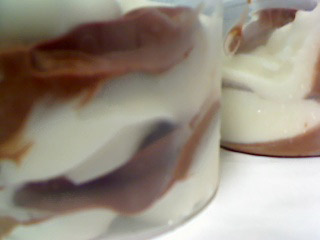A recent study indicates that consumption of low carbs and high amounts of dairy leads to considerably flatter tummies among women.
Anyone who already ascribes to the positive effects of a low carb diet knows that the fewer carbohydrates you eat, the less body fat you retain. but for as much as this is an anecdotal fact for many low carb dieters, very few clinical studies have gained mainstream traction in the U.S. medical community with respect to low carb dieting, thanks to a strong lobby from carb-rich U.S. food manufactuers.
But a recent study is now gaining popularity in the press, which proves that a diet high in protein and low in carbs leads to a trimmer physique and less belly fat.
McMaster Daily News reported on the finding, which was originally published by the Journal of Nutrition, which “compared three groups of overweight and obese, but otherwise healthy, premenopausal women. Each consumed either low, medium or high amounts of dairy foods coupled with higher or lower amounts of protein and carbohydrates.” By ensuring that these women exercised equally, they were able to compare the results diets with varying levels of carbohydrates. The results were compelling.
According to the article, “there were identical total weight losses among the groups, but the higher-protein, high-dairy group experienced greater whole-body fat and abdomen fat losses, greater lean mass gains and greater increases in strength.”

This finding is significant, since it vindicates what Dr. Atkins espoused in his groundbreaking Diet Revolution: that low carb diets indeed burn fat, whereas low calorie diets’ results come more from water loss and muscle loss.
The science behind these findings is simple: when the body doesn’t receive enough energy from carbohydrates in the daily diet, it draws instead from stores of fat within the body to make up for the loss. In this way, by reducing carbs in your diet, you’re forcing your body to burn that fat to make up the difference. Conversely, when you eat a high-carb diet, the body stores the extra fat mostly in the belly.
The implications here are significant for the low carb diet community, which has had little supporting science in the mainstream medical and research community to back up its claims until now. While all low carb dieters can identify that these facts are true, the new report helps to corroborate what has been known for decades about carbohydrate consumption.
To be sure, low calorie diets and heavy exercising also leads to weight loss as well, but it is being proven now that the body is less discriminating in shedding pounds in the form of water and/or muscle when depriving your body of calories. With a low carb diet, however, one’s metabolism specifically targets body fat as a reliable source of energy.
Getting Dairy Into A Low Carb Diet
Another component of this finding is that higher amounts of dairy were included in low carb diets as well. Dairy can be a tricky food ground for the low carb dieter, since, while some dairy products are safe on a low carb diet, others are to be avoided. As always, heavy cream, which has no net carbs, can be substituted for milk and even yogurt in many recipes. Also, hard cheeses are a great snacking option for the low carb dieter.
But since ice cream is a big dairy no-no, opting for low carb desserts can be a great alternative.